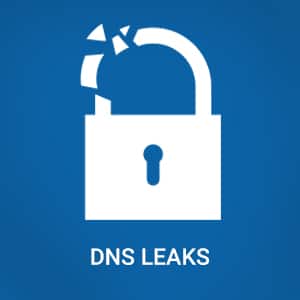The DNS or Domain Name System is part of the internet’s backbone. The devices that are equipped with the internet capability use IP addresses to communicate with one another. as we said earlier, IP addresses are unique numeric addresses that identify resources on a network, and these include websites. But for us(humans) we find it hard to remember these IP addresses and hence we use words. For instance, we type www.google.com to access the Google search engine. But on the internet, the servers don’t understand the words. Instead, they understand IP addresses. To solve this issue, a DNS translates the website name to the specific IP address. As many analogues describe it, a DNS is like a phone directory for the internet – type a name, and it will give you its corresponding number.
Peligros asociados al DNS
There are many dangers related to DNS and can range from security to privacy issues. Below is a DNS danger that occurs when connected to a VPN or an anonymizing service.
 Fugas DNS
Fugas DNS
Cuando se utiliza una VPN, el tráfico de datos se cifra y la dirección IP real se oculta de miradas indiscretas. Ocultar su dirección IP real implica utilizar el servidor DNS de la VPN para atender sus solicitudes de Internet. Pero a veces esto no es lo que sucede, ya que su solicitud de Internet termina siendo atendida por su ISP. Esto es lo que se llama una fuga de DNS, y es un riesgo para la privacidad. Un sistema operativo puede causar una fuga de DNS; por ejemplo, el SO Windows se confunde al resolver problemas de DNS, y acaba utilizando el DNS del ISP por defecto. Otra causa puede ser atribuida al hecho de que la VPN no soporta las direcciones IPv6, y por lo tanto no puede manejar sus peticiones. En su lugar, deja que el sistema operativo las gestione a través de tu ISP.
Además de las filtraciones, existen otros peligros para el DNS
Ataques DDoS
Los ataques DDoS o de denegación de servicio distribuido también afectan al DNS. Esto se debe a que el DNS representa un punto central en el que la red puede verse asfixiada. Estos ataques suelen producirse si la infraestructura DNS no puede atender las peticiones que se le dirigen. En este caso, el servidor DNS se sobrecargará y su rendimiento disminuirá hasta el punto de quedar inhabilitado. Cuando esto ocurra, los usuarios no podrán acceder a los servicios a través del servidor DNS y, por tanto, se producirá una denegación de servicio. Los atacantes pueden utilizar botnets para llenar un servidor DNS de peticiones hasta el punto de que se rompa. Para evitar ataques DDoS, utiliza un DNS con la infraestructura y seguridad adecuadas. Las VPN de renombre gestionan sus servidores DNS y, por tanto, ofrecen servicios excelentes.
Envenenamiento de la caché
A veces, puede que no estés accediendo al servidor DNS en tiempo real. Para mejorar el rendimiento, los datos DNS pueden almacenarse en caché, y esto ayuda a reducir la carga de los servidores cuando se accede al mismo recurso. Aunque esto mejora los tiempos de respuesta, la caché DNS puede ser envenenada. El envenenamiento de la caché es una situación en la que los ciberdelincuentes aprovechan la vulnerabilidad de los servidores DNS mal configurados e inyectan información maliciosa en la caché DNS. Esta información puede incluir sus DNS. Por ejemplo, basta con esto para que los usuarios que accedan a la caché envenenada sean redirigidos automáticamente al dominio del atacante. Este dominio puede contener sitios falsos, y los usuarios no sabrán si están siendo víctimas de phishing.
Para evitar los peligros de las DNS, utiliza siempre proveedores de DNS y VPN de confianza que gestionen su infraestructura de DNS. También debes saber que un DNS puede registrar tu dirección IP, tu ubicación, lo que haces en línea y puede identificar a tu ISP. Se trata de un grave problema de privacidad, por lo que solo deberías elegir proveedores con registro de DNS cero.


